The Yoga Dictionary
The Sanskrit language is rich in words to communicate ideas about spiritual life, yoga, and God realization. This dictionary, appearing by installments in back to godhead, will focus upon the most important of these words.
The Sanskrit language is rich in words to communicate ideas about spiritual life, yoga, and God realization. This dictionary, appearing by installments in back to godhead, will focus upon the most important of these words.
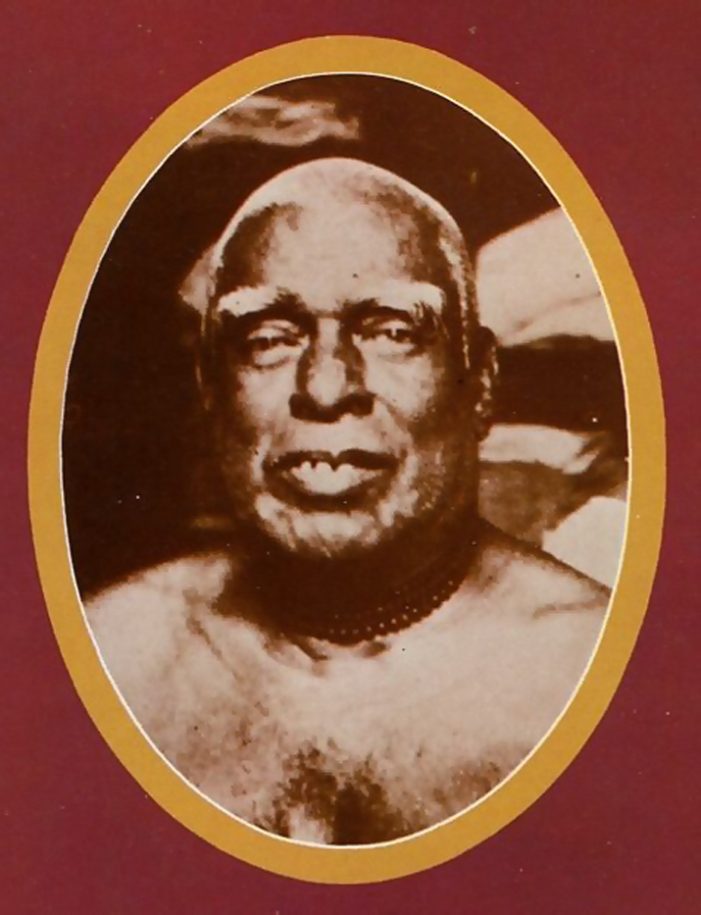
Traveling from place to place, Proud of my education, I grew wealthy and maintained my family With undivided attention. O Lord Hari, O Krsna, I forgot You!
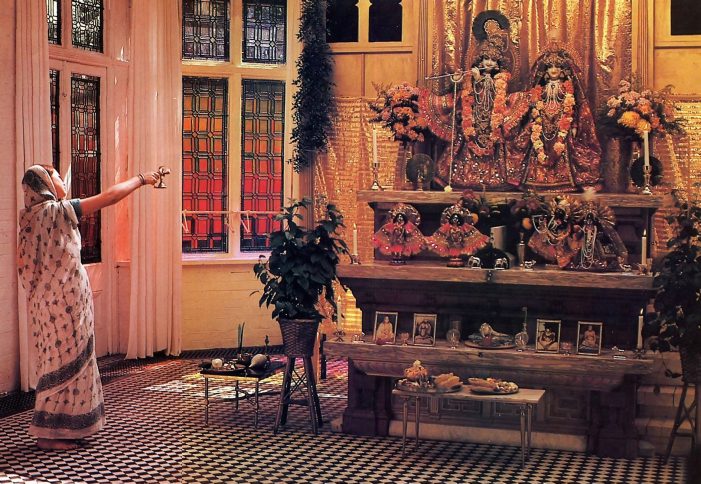
Here it is clearly stated that out of all the different kinds of yogis-—the astanga-yogi, the hatha-yogi, the jnana-yogi, the karma-yogi, and the bhakti-yogi—the bhakti-yogi is on the highest platform of yoga.
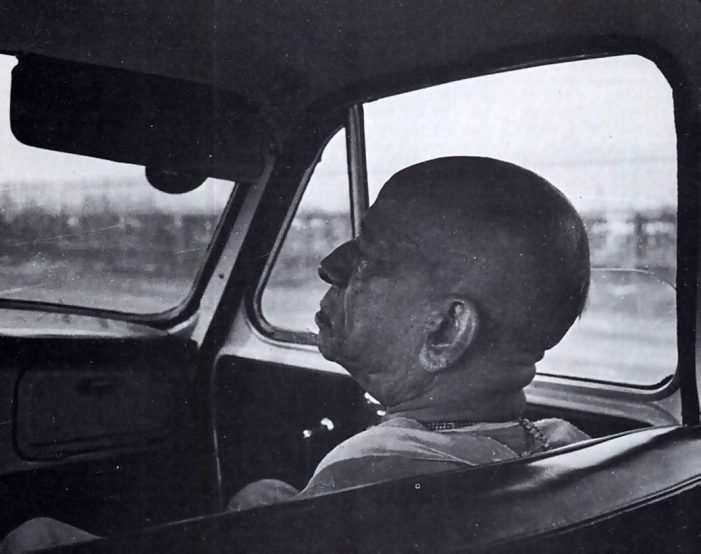
The temple at 26 2nd Ave was thriving, but now it was time to break new ground. The most fertile field was San Francisco’s Haight-Ashhurv, where the cultural revolution that had begun on the Lower East Side was about to explode with a mass migration of searching, frustrated young people.
Many people haven’t given much thought to the question of whether there is life after death, and many even prefer to ignore death. Still, we all must die. Like a tiger, death stalks each of us. Sooner or later it will strike.
In darkness have I traveled, In nescience was I born. For eons had I journeyed In existence forlorn, My knowledge had been covered, Forgetful. and blind, In different planes I’d hovered, But soon I lost my mind.
The Sanskrit language is rich in words to communicate ideas about spiritual life, yoga, and God realization. This dictionary, appearing by installments in BACK TO GODHEAD, will focus upon the most important of these words.
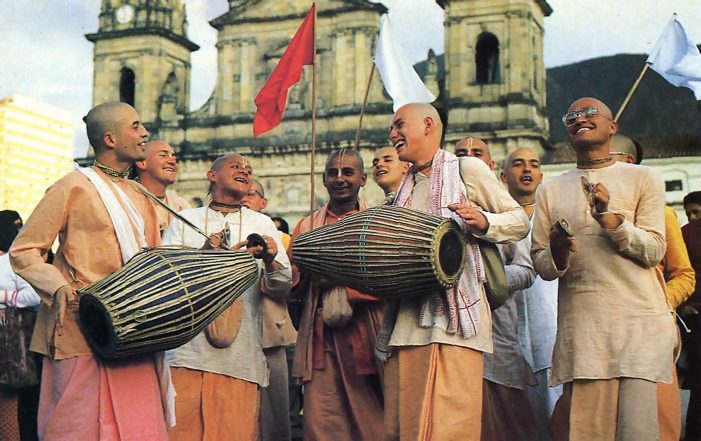
I do not know how much nectar the two syllables ‘Krs-na’ have produced. When the holy name of Krsna, is chanted, it appears to dance within the mouth. We then desire many, many mouths. When that name enters the holes of the ears, we desire many millions of ears.
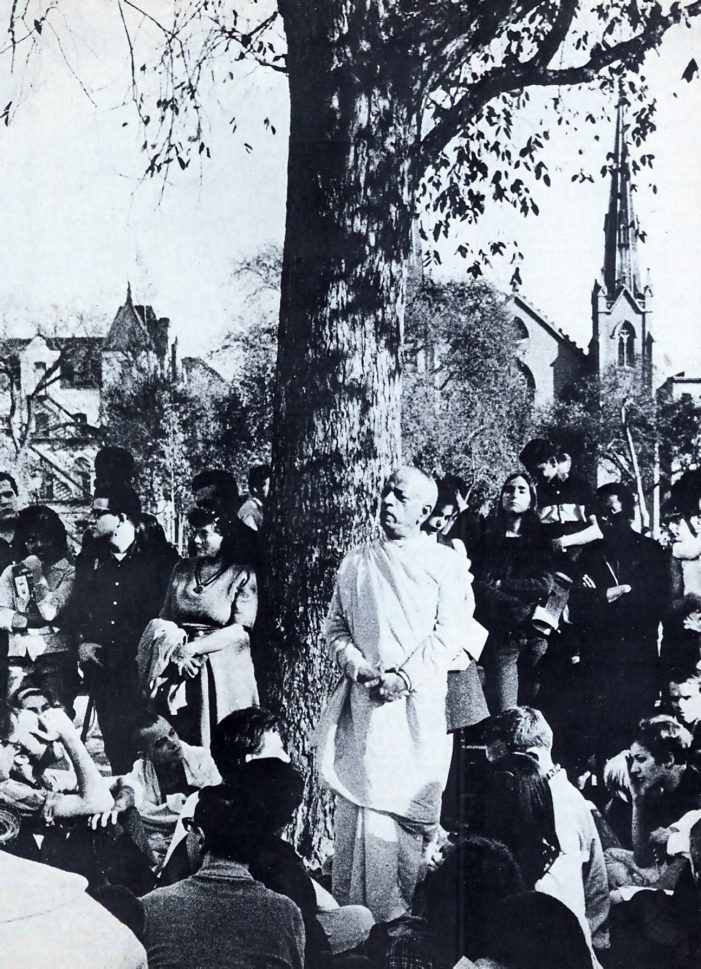
Since he started the public chanting of Hare Krsna in Washington Square Park, in the heart of Greenwich Village, Srila Prabhupada had been sending out small “parades” of devotees, chanting and playing hand cymbals through the streets of the Lower East Side.
Is there life after death? If so, what is the nature of that life? These questions have always been with us, and the search for their answers is an intrinsic function of the human psyche.
The Sanskrit language is rich in words to communicate ideas about spiritual life, yoga and God realization. This dictionary, appearing by installments in BACK TO GODHEAD, will focus upon the most important of these words.
“Krishna consciousness is close to 100% successful in stopping drug use among those who voluntarily enter the program”—Addictions Magazine, Washington, D.C, Area Council on Alchoholism & Drug Abuse, Inc.
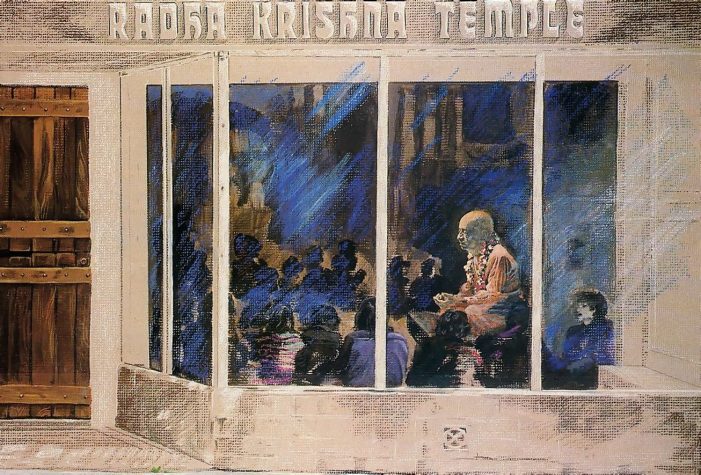
Srila Prabhupada had come to San Francisco as the hippie movement was reaching its height. He found his small temple on Frederick Street, in the heart of the Haight-Ashbury district was becoming a spiritual haven for troubled, searching, and sometimes desperate young people.
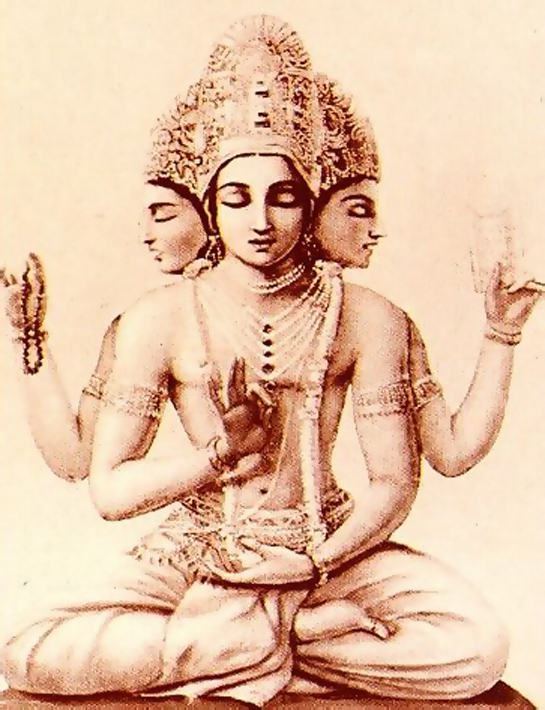
We’d rather be in the position of teacher than that of student. Submission to a teacher implies an admission that I need instruction and guidance. And this is humbling. Most of us will submit to another person for guidance only as a last resort, when all our own wisdom has failed.

If TWA were selling tickets for a flight to a newly discovered planet where no one grew old, no one suffered disease, and no one ever died, who wouldn’t want to purchase a ticket to go there, at any cost?
The Sanskrit language is rich in words to communicate ideas about spiritual life, yoga, and God realization. This dictionary, appearing by installments in Back to Godhead, will focus upon the most important of these words.
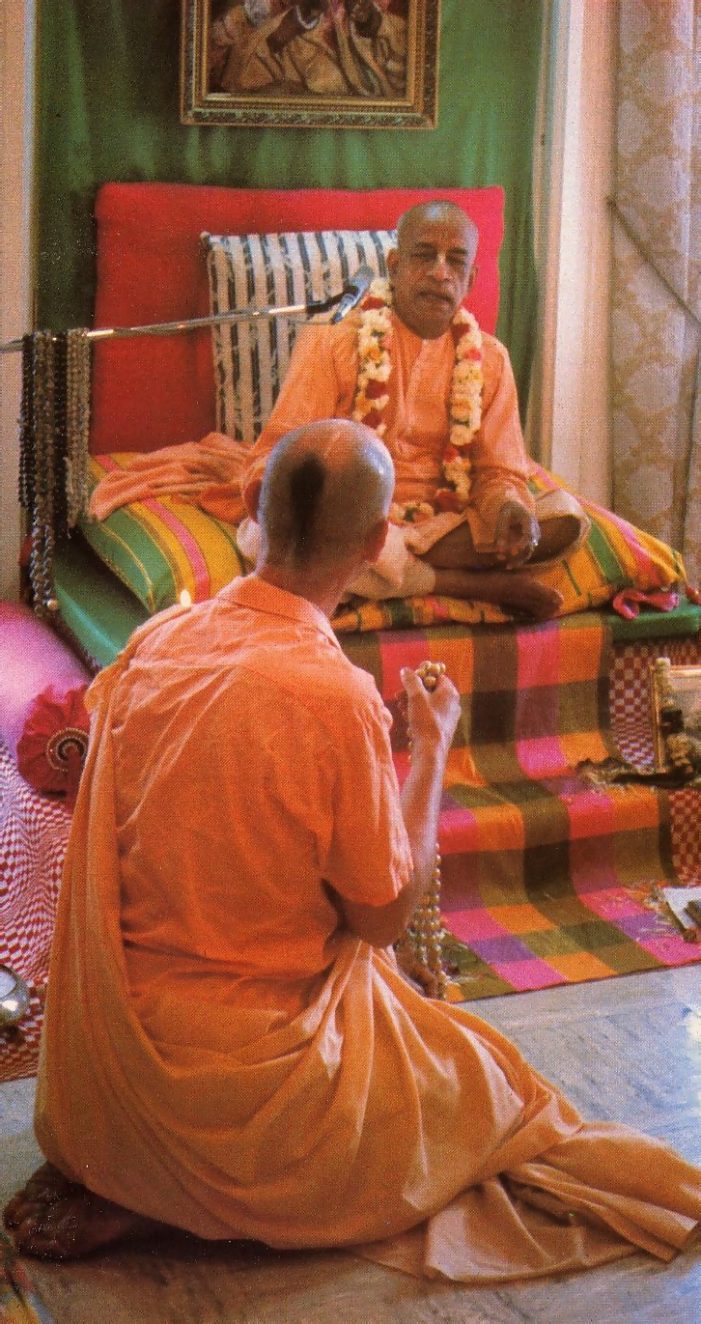
You’ve been speaking at some length about the notion of the guru. According to your tradition, what is the role of the disciple? How does he deal with the guru?
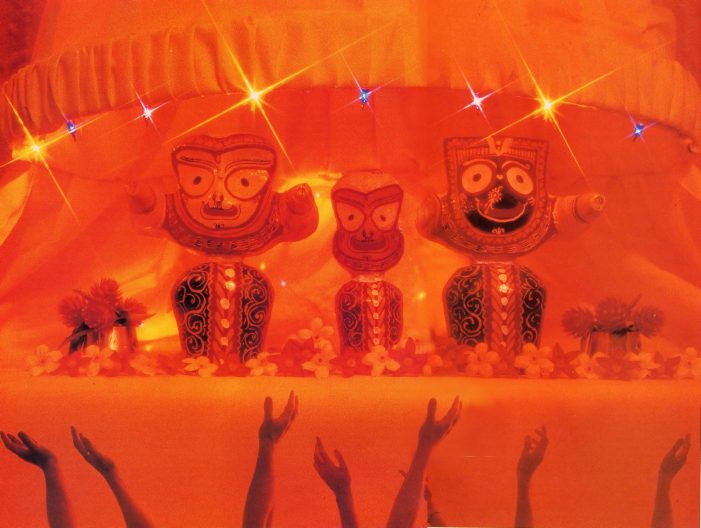
San Francisco, 1967. Prabhupada’s temple had become an integral part of the youth scene in the Haight-Ashbury district. Now, unexpectedly, the Lord of the universe came to the temple through the agency of a local import store.
Karma is the law of cause and effect: there is a reaction for everything we do. If we throw a coin up, it will come down. If we regularly put money in the bank, our wealth will accumulate. If we drink too much, we’ll get drunk. These are natural laws of cause and effect.
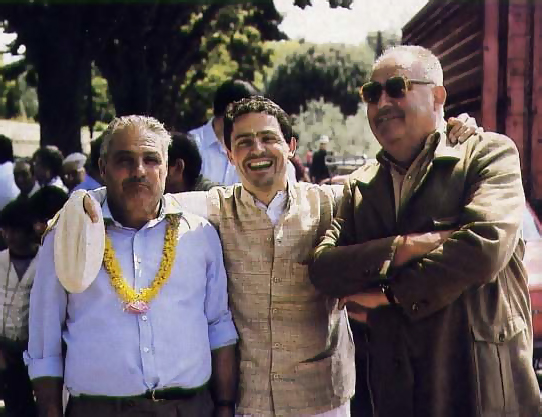
At the end of each day, after trading in his Gucci suit for a simple cotton dhoti, Marco spends the evening hours chanting Hare Krsna on beads, reading Bhagavad-gita, and speaking with visitors about the philosophy of Krsna consciousness.